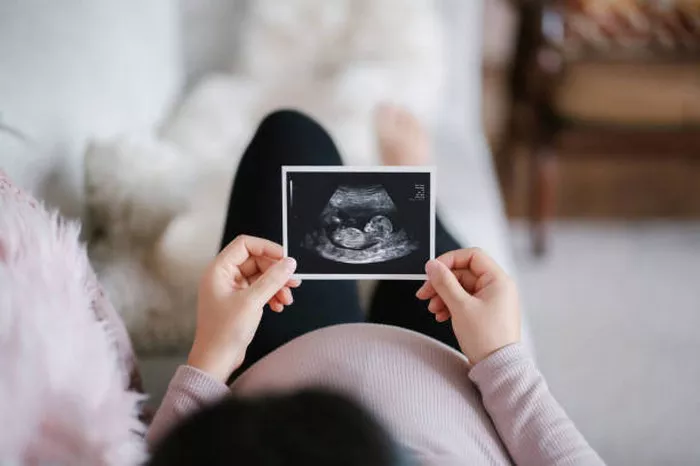When it comes to confirming a pregnancy, many women are eager to know when they can take a test and receive an accurate result. The anticipation can be overwhelming, especially when you suspect you may be pregnant. Understanding the biology behind pregnancy tests, the timing of hormone production, and the factors that influence test accuracy can help you navigate this crucial period. In this article, we will explore how long after conception you can expect to test positive for pregnancy, the types of pregnancy tests available, and important considerations for accurate testing.
Understanding Pregnancy Tests
Pregnancy tests work by detecting the presence of human chorionic gonadotropin (hCG), a hormone produced by the placenta shortly after a fertilized egg attaches to the uterine lining. This typically occurs about six to ten days after conception. However, the timing of hCG production and the sensitivity of the test used play significant roles in determining when a positive result can be expected.
Types of Pregnancy Tests
Home Pregnancy Tests (HPTs): These are the most common method for testing at home. They are available over-the-counter and vary in sensitivity. Some tests can detect hCG levels as low as 10 mIU/mL, while others may require higher levels for a positive result.
Blood Tests: Conducted in a healthcare setting, blood tests can detect pregnancy earlier than home tests. There are two types:
Qualitative hCG Test: This test simply checks for the presence of hCG and provides a yes or no answer.
Quantitative hCG Test: This test measures the exact amount of hCG in the blood and can provide more detailed information about the pregnancy.
Timing of hCG Production
After conception, the fertilized egg travels down the fallopian tube and implants itself into the uterine lining. This implantation triggers the production of hCG. Here’s a timeline of what to expect:
Conception: This occurs when a sperm fertilizes an egg, typically within 24 hours after ovulation.
Implantation: Generally occurs between 6 to 10 days after conception. This is when hCG production begins.
hCG Levels: After implantation, hCG levels rise rapidly. They typically double every 48 to 72 hours in early pregnancy.
When to Take a Pregnancy Test
Earliest Detection: If you are eager to test as soon as possible, you can take a home pregnancy test about 1 week after conception, or around 5-7 days before your expected period. However, testing this early may yield false negatives due to low hCG levels.
Most Accurate Timing: For the most reliable result, it is recommended to wait until the first day of your missed period. By this time, hCG levels are usually high enough to be detected by most home tests.
After Missed Period: If you miss your period, taking a test at this point will provide a more accurate result. If the test is negative but you still suspect pregnancy, wait a few days and test again, as hCG levels continue to rise.
Factors Affecting Test Accuracy
Several factors can influence the accuracy of pregnancy tests:
Sensitivity of the Test: Different tests have varying sensitivities. Some tests can detect lower levels of hCG, while others may require higher levels for a positive result.
Timing of Testing: Testing too early can result in a false negative. It’s essential to consider the timing of ovulation and implantation.
Dilution of Urine: Testing with diluted urine (for example, after drinking a lot of water) can affect the concentration of hCG and may lead to inaccurate results. For the best results, test with the first morning urine, which is typically more concentrated.
Irregular Cycles: Women with irregular menstrual cycles may find it challenging to determine the right time to test, as they may not know when to expect their period.
Medical Conditions: Certain medical conditions, such as ovarian cysts or some cancers, can cause elevated hCG levels, potentially leading to false positives.
Understanding hCG Levels
To provide more context on hCG levels, here’s a general guideline of what to expect:
3 weeks after conception: hCG levels can be around 5 to 50 mIU/mL.
4 weeks after conception: Levels typically rise to 50 to 500 mIU/mL.
5 weeks after conception: Levels can range from 100 to 5,000 mIU/mL.
6-7 weeks after conception: Levels usually rise to 1,000 to 100,000 mIU/mL.
These levels can vary significantly among individuals, so it’s important to use these numbers as a general guide rather than a strict rule.
When to Consult a Healthcare Provider
If you receive a positive pregnancy test, it’s advisable to schedule an appointment with a healthcare provider to confirm the pregnancy and begin prenatal care. Additionally, if you have a negative test but still suspect pregnancy due to symptoms (such as nausea, breast tenderness, or fatigue), consult your provider for further evaluation.
Pregnancy Symptoms to Watch For
In addition to testing, being aware of early pregnancy symptoms can help you identify a potential pregnancy. Common early signs include:
Missed Period: The most obvious sign.
Nausea: Often referred to as morning sickness, which can occur at any time of day.
Breast Changes: Tenderness, swelling, or darkening of the areolas.
Fatigue: Increased tiredness due to hormonal changes.
Frequent Urination: As the uterus expands and hormone levels rise, you may find yourself needing to urinate more often.
Conclusion
In summary, the timing of when you can test positive for pregnancy is influenced by several factors, including the timing of conception, implantation, and the sensitivity of the test being used. For the most accurate results, it is best to wait until the first day of your missed period or at least one week after conception. If you suspect you might be pregnant, consider taking a home pregnancy test and consult a healthcare provider for confirmation and guidance. Understanding your body and the biology of pregnancy can help alleviate anxiety and provide clarity during this exciting time.
Related Topics:
- What Causes Hair Loss After Childbirth?
- How To Confirm Pregnancy?
- What Does Postpartum Anxiety Feel Like?


